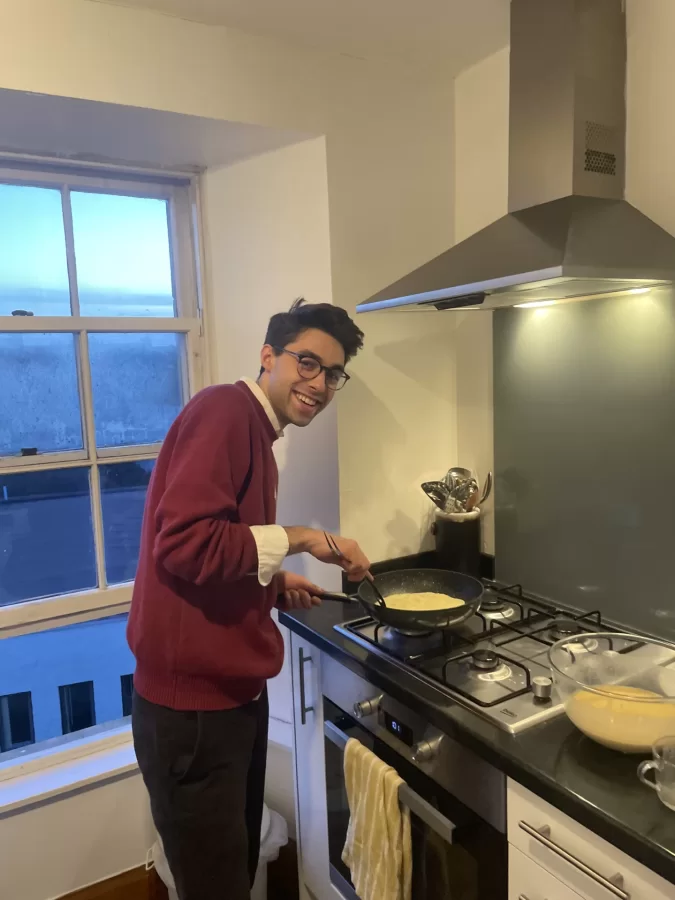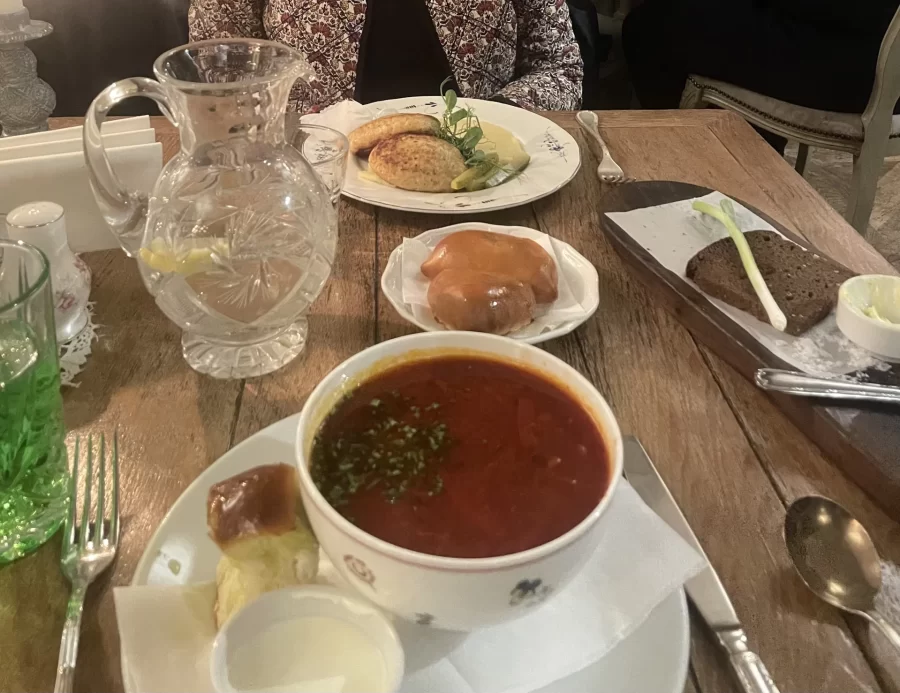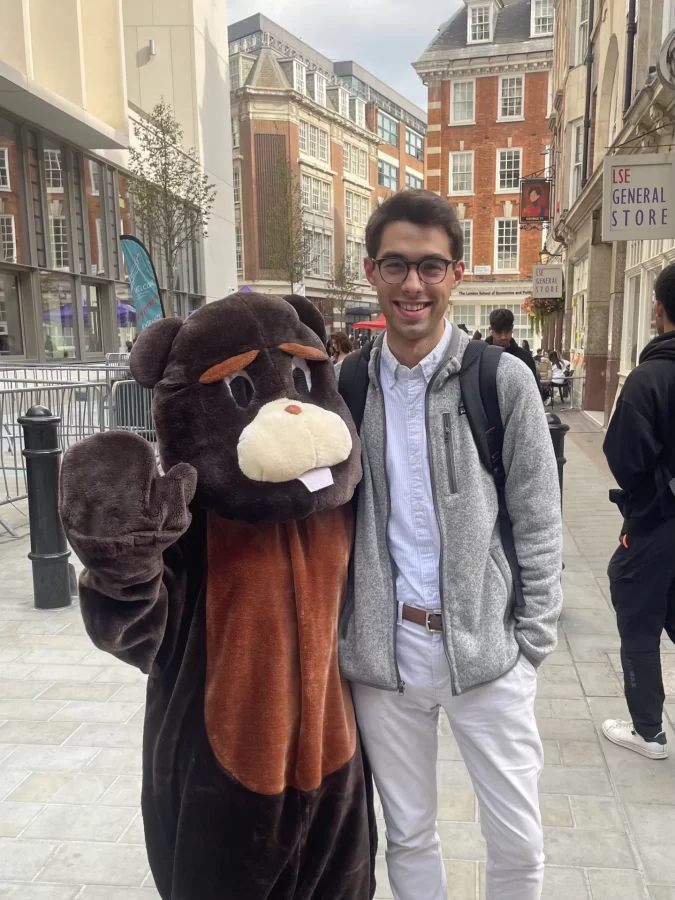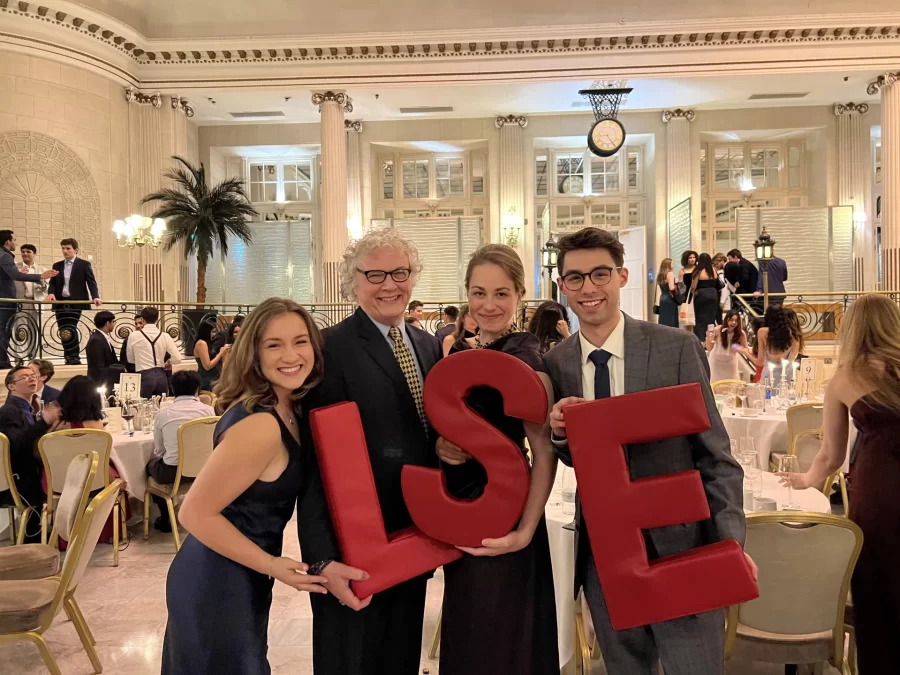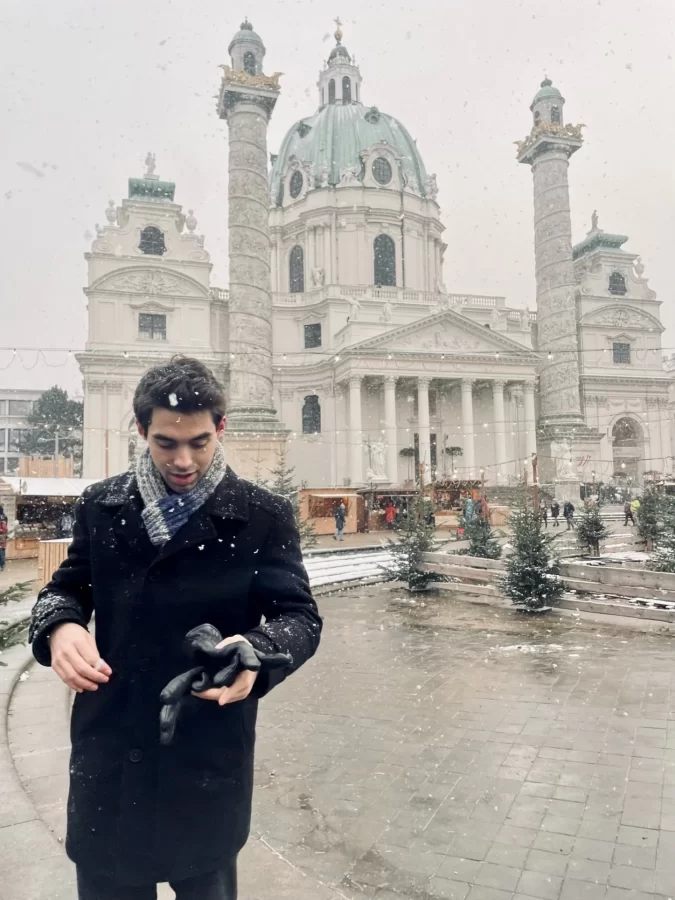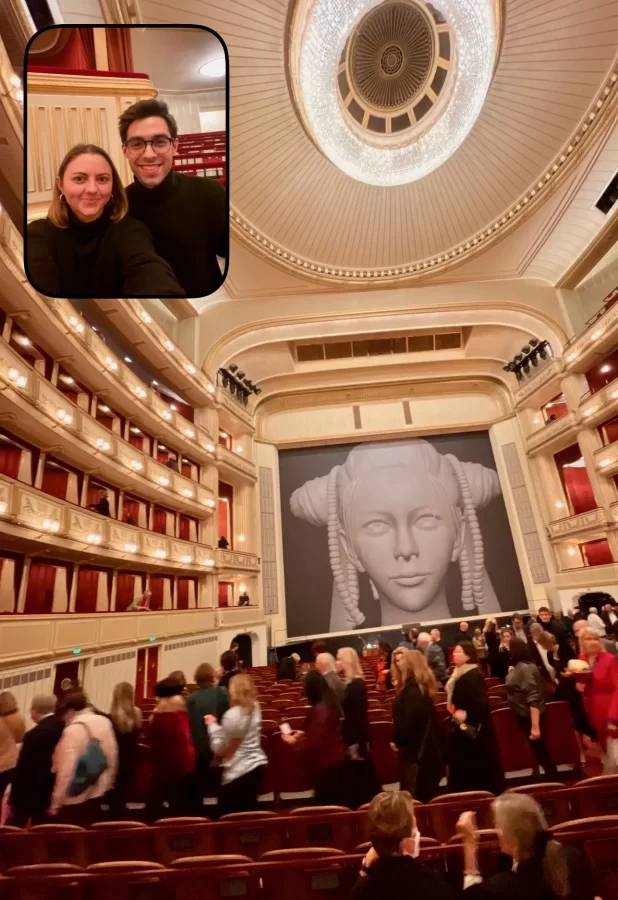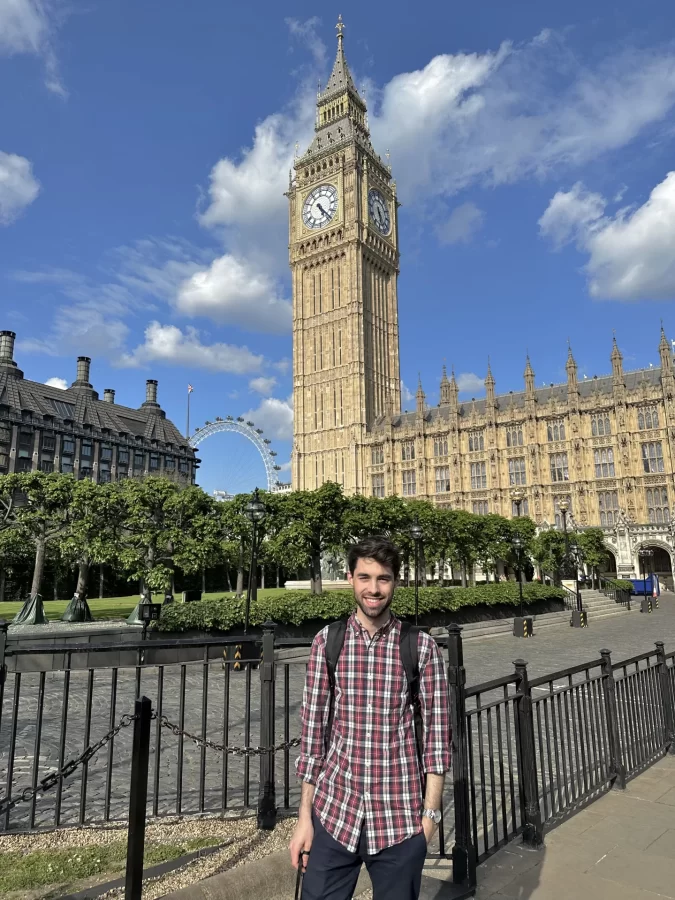Jaden Witte-Schrock (’24) on opportunities to learn Russian in London
During my year abroad studying at the LSE in London, England, I found many opportunities to further my knowledge of Russian and expose myself to Central and Eastern European culture. I was fortunate enough to be one of three students studying LSE’s intermediate Russian curriculum with two other LSE students from the UK. The course was taught by two wonderful scholars who were born and raised in the Soviet Union. Their teaching styles were very different from each other, which was wonderful because both challenged me in different ways that allowed me to improve and maintain my Russian knowledge. Although LSE is a large institution, not many of its students enroll in its language programs that are taught by very impressive individuals. This allows its language courses to be taught differently than most other courses at LSE, which consist of large lectures with minimal contact with the professors giving them. Even a year later, I still speak regularly with the students who I studied Russian with at LSE and consider them to be some of the best friends that I’ve had.
Outside of class, I was fortunate to find myself in one of the most diverse metropolitan cities in the world and was able to find several Russian restaurants, markets, and communities. I have many fond memories of going to these places with my Russian language classmates at LSE and at Bates when they would visit. I was also fortunate enough to meet many Russian-speaking people whom I made friends with. Together, we would all watch Russian films and cartoons, and I was able to learn more about Russian culture in a social context in addition to more speaking practice. I also had the opportunity to easily stay in touch with and visit other friends abroad, such as one of Bates’ former German Fulbright Language Teaching Assistants in Vienna. This was one of my fondest memories, which pushed me to learn some German language and engage with Austrian culture quickly. On one of the evenings, we went and saw Mozart’s Die Zauberflöte (The Magic Flute), as pictured below.
I highly encourage Russian students who are considering studying abroad at the LSE to continue to keep up with their Russian Language by enrolling in their courses and by engaging with Russian in the broader community however possible, even if you are not in a Russian-speaking country.
I would also encourage students to make friends while studying abroad and take the chance to get to know the Fulbright TAs because you may find yourself in a position where you can ask them for advice if you ever get the chance to visit their city or home country.
